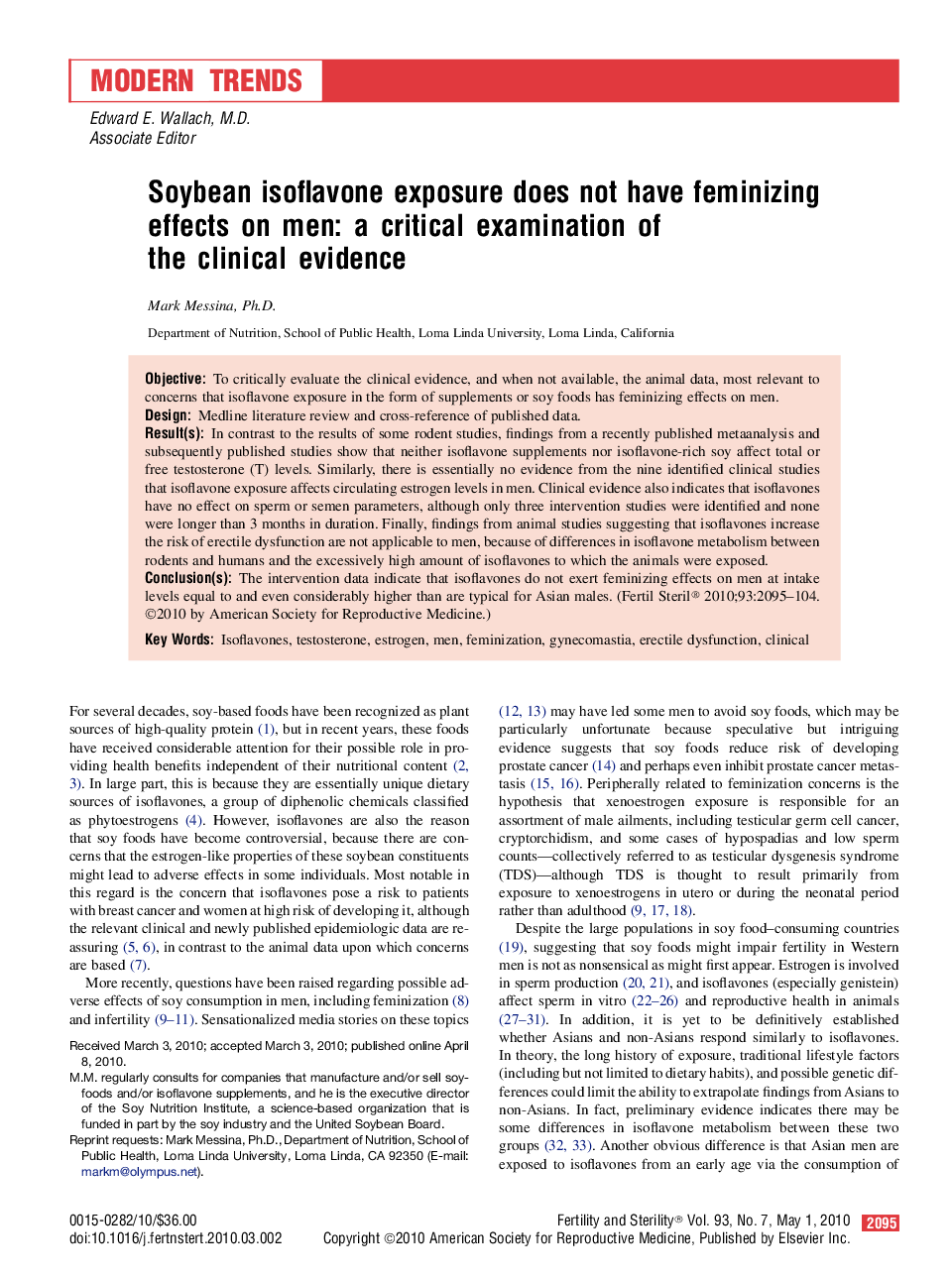| کد مقاله | کد نشریه | سال انتشار | مقاله انگلیسی | نسخه تمام متن |
|---|---|---|---|---|
| 3936316 | 1253444 | 2010 | 10 صفحه PDF | دانلود رایگان |

ObjectiveTo critically evaluate the clinical evidence, and when not available, the animal data, most relevant to concerns that isoflavone exposure in the form of supplements or soy foods has feminizing effects on men.DesignMedline literature review and cross-reference of published data.Result(s)In contrast to the results of some rodent studies, findings from a recently published metaanalysis and subsequently published studies show that neither isoflavone supplements nor isoflavone-rich soy affect total or free testosterone (T) levels. Similarly, there is essentially no evidence from the nine identified clinical studies that isoflavone exposure affects circulating estrogen levels in men. Clinical evidence also indicates that isoflavones have no effect on sperm or semen parameters, although only three intervention studies were identified and none were longer than 3 months in duration. Finally, findings from animal studies suggesting that isoflavones increase the risk of erectile dysfunction are not applicable to men, because of differences in isoflavone metabolism between rodents and humans and the excessively high amount of isoflavones to which the animals were exposed.Conclusion(s)The intervention data indicate that isoflavones do not exert feminizing effects on men at intake levels equal to and even considerably higher than are typical for Asian males.
Journal: Fertility and Sterility - Volume 93, Issue 7, 1 May 2010, Pages 2095–2104